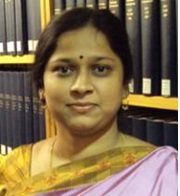
Dr.K.V.K.Santhy
Associate Professor
Ph : +9140 – 23498402/404
Ms. B. Nagalakshmi
Assistant Registrar
Ph : +9140 – 23498402
Ms. G. Usha Devi
Junior Assistant
Ph : +9140 – 23498404
Mr. B. Vijay Kumar
Record Assistant
Ph : +9140 – 23498404
Directorate of Distance Education
NALSAR University of Law
Justice City, Shameerpet, Medchal District,
Hyderabad - 500101, Telangana, India.
Ph : +9140 – 23498404;Fax: +91 40 23498403